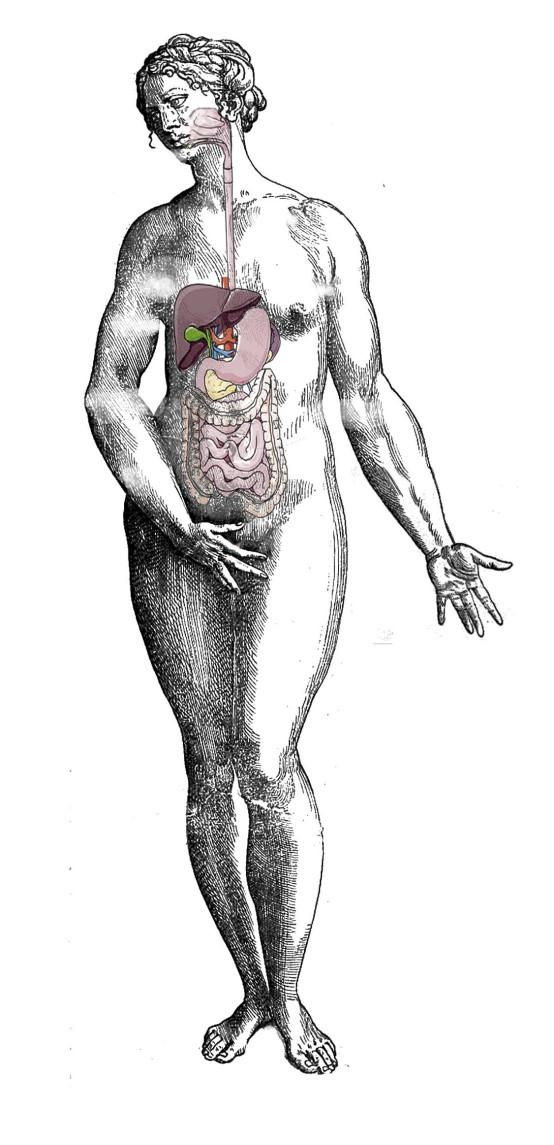v: Anthroposophical Views
Into the biome Dora Wagner The mind is like the stomach, You should only ask as much as it can digest Sir Winston Churchill
The essential purpose of digestion is to convert that which is foreign to our body into its own, and that really is a challenging task. Everything unfamiliar must lose its strangeness and become part of ourselves; this is exactly what the term ‘metabolism’ means. From the perspective of anthroposophical medicine, all primary impulses of the internal organs below the diaphragm, and those of the extremities, are subject to the ‘metabolic-limb system’ (see my November 2020 column for a more detailed explanation). Here, substances are absorbed, processed and transformed; the body is nourished and sustained by the substances supplied from outside; cell division and excretion take place. Everything is in motion and connected with transforming and dissolving forces— the so-called ‘sulphuric forces’. Digestion should lead an element or a compound into neutrality and thus make it available to metabolism and its formative (Girke, 2010). These processes of transformation and reinforcement are also attributed to the foundations of human will, including action. Thus ‘digestion’ primarily describes food intake, but also applies in general to everything affecting our organism from the outside. We are all familiar with situations where we ‘go with our guts’, we feel ‘butterflies in our stomach’, or we find something ‘stomach churning‘.
intestinal flora to the formation of human thought, and suggested the relationship between intestines and brain development should be studied phylogenetically (Steiner, 1920). Indeed, the gastrointestinal tract and the brain communicate with each other intensively and, above all, reciprocally: the intestine not only receives instructions from the brain, but also sends signals there. This is why the intestine is also referred to as ‘the second brain’ (Carabotti, 2015). Just as plants, animals, humans, and other living beings form ecosystems with complex
For several years now, the gut-brain axis has been intensively studied by scientists, so today the influence our digestive system has on our thinking, feeling, behaviour and wellbeing is becoming increasingly clear. Yet a century ago, Rudolf Steiner was giving lectures in which he emphasised the functional connections between gut and brain, the importance of
23







